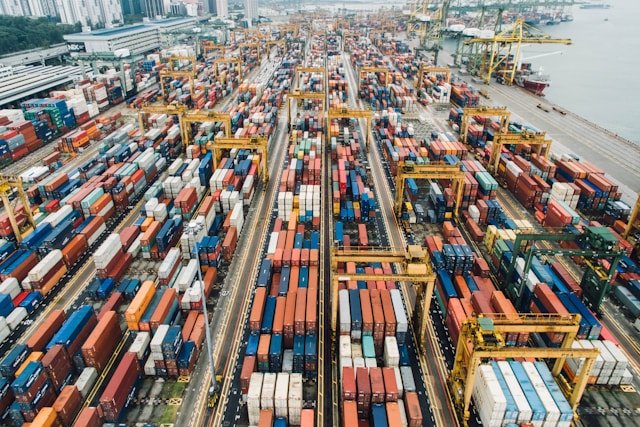Emerging markets offer enormous growth potential for the global logistics industry, but they also present unique challenges, including unstable conditions, supply chain disruptions, rising costs, inadequate infrastructure, and labour shortages. Changing trade rules only adds more uncertainty.
Due to these challenges, traditional logistics strategies that prioritise speed and cost often fail to be effective in these markets. To succeed, companies need to be resilient, flexible, and really understand local conditions. That’s why local expertise matters so much, because “no one knows the market better than someone who’s in it.”
Building strong local teams and partnerships enables companies to handle regulations more effectively and gain acceptance more quickly. Platforms like WareOne are a great example, offering end-to-end fulfilment solutions that leverage local networks to help businesses stay agile and competitive in rapidly changing environments.
In this blog, you’ll explore how local expertise can unlock smarter logistics operations in emerging markets.
Common Logistics Challenges for SMEs in Emerging Markets
Emerging markets offer major opportunities, but they come with a unique set of hurdles. Let’s take a closer look at some of the key challenges logistics businesses face on the ground.
1. Economic Volatility and Currency Fluctuations
Emerging markets often face economic instability. Inflation and currency values change unpredictably. These changes drive up supply chain costs and complicate financial planning. For example, when the local currency loses value, imported goods cost more. This reduces profit margins.
2. Infrastructure Limitations
Many emerging markets have underdeveloped transportation networks. Ports are outdated, and energy supplies can be unreliable. These issues cause delays and increase costs. Congested highways and poor rail systems force logistics providers to use multiple transport methods. This adds complexity to deliveries.
3. Regulatory Complexity and Trade Barriers
Regulations in these markets are often complex. Customs rules, import/export restrictions, and compliance requirements vary widely. Long-term warehouse contracts and hidden fees add extra challenges. Even small mistakes can lead to costly delays or penalties. Working with logistics platforms like WareOne, which are familiar with local regulations, can simplify processes like customs clearance and reduce the likelihood of disruptions.
4. Cultural and Communication Barriers
Cultural differences shape business practices and negotiation styles. In regions such as the Middle East, hierarchical decision-making can hinder operations. Misunderstanding local customs can block communication. This makes it more challenging to establish trust with stakeholders.
These challenges are significant, but they’re not insurmountable. The key to navigating them? Local expertise.
How Local Expertise Enhances Logistics Operations In Emerging Markets
Using local knowledge in emerging markets offers many benefits. It improves how businesses operate, saves money, and strengthens their position in the market.
1. Building Stronger, More Flexible Supply Chains
Local suppliers are often more adaptable to changes, helping businesses maintain smooth operations in the face of global disruptions. By working with partners who are close to the market, companies can respond faster to shifting conditions, speeding up product development and reducing wait times.
2. Cutting Costs and Protecting Finances
Sourcing locally shortens supply chains, reducing transportation costs, fuel usage, and packaging waste. Additionally, working within the local economy helps protect against the risks of currency fluctuations and trade disruptions that could make imports more expensive or unreliable.
3. Speeding Up Product Launches and Improving Quality
Proximity to suppliers fosters quicker communication and problem-solving. With shorter transport distances, perishable goods stay fresher for longer. Local suppliers are often more inclined to customise products to meet specific needs, ensuring higher quality and more tailored offerings.
4. Navigating Rules and Culture
Local experts are familiar with the laws and customs, enabling companies to avoid mistakes. They understand how business works in each place, building trust and making relationships smoother.
5. Building Trust and Boosting Brands
Buying local supports communities and creates jobs. This earns customer trust and loyalty, with many people willing to pay more for local products. Sharing stories about local partners in marketing makes brands feel more genuine and attracts more attention.
Local expertise lowers risks, cuts costs, speeds up delivery, and builds strong brands. It’s finding a way to connect deeply with communities and succeed in complex markets.
How You Can Strategically Implement Local Expertise for Operational Excellence
Building local expertise takes a strategic approach. It involves having a physical presence, developing local talent, and wisely using technology.
1. Set Up a Physical Presence and Build Local Partnerships
Being on the ground lets you understand how things work. Local partners know the market’s quirks, from the best routes to key contacts. This cuts down on guesswork and speeds up problem-solving. Strong partnerships also give you access to networks and resources you can’t reach remotely. Platforms like WareOne thrive on these deep local connections to deliver reliable last-mile support in complex markets.
2. Invest in Training and Growing Local Talent
Technology won’t work if people don’t know how to use it. Local employees who understand the market and data can spot issues early. Training turns them into problem solvers who can handle the unexpected, a standard in emerging markets.
3. Combine Technology with Local Know-How
While advanced tools help streamline operations and offer valuable data, they often overlook real-time disruptions and cultural nuances. That’s where local expertise comes in. Blending the speed of automation with the adaptability of local insight gives businesses a better edge, making them more reliable and responsive. WareOne, for example, uses its digital platforms but still taps into local knowledge in places like Qatar to stay ahead.
4. Balance Global Standards with Local Adaptation
Global best practices set high standards for quality. However, applying them rigidly can lead to delays and compliance issues. Adapting them to local needs ensures smoother implementation and better acceptance.
5. Put People at the Centre of Technology Use
Technology is only as good as the people using it. Skilled employees interpret data, make decisions, and solve problems that machines can’t predict. Investing in people ensures that technology works well with local conditions.
By now, it’s clear: local expertise isn’t just a nice-to-have, it’s a must-have for succeeding in emerging markets.
Final Thoughts
Local expertise is a critical asset for logistics operations in emerging markets. When your business combines granular regional knowledge with global best practices, it turns challenges into an advantage. Hence, your future logistics strategies should focus on hyper-localisation.









